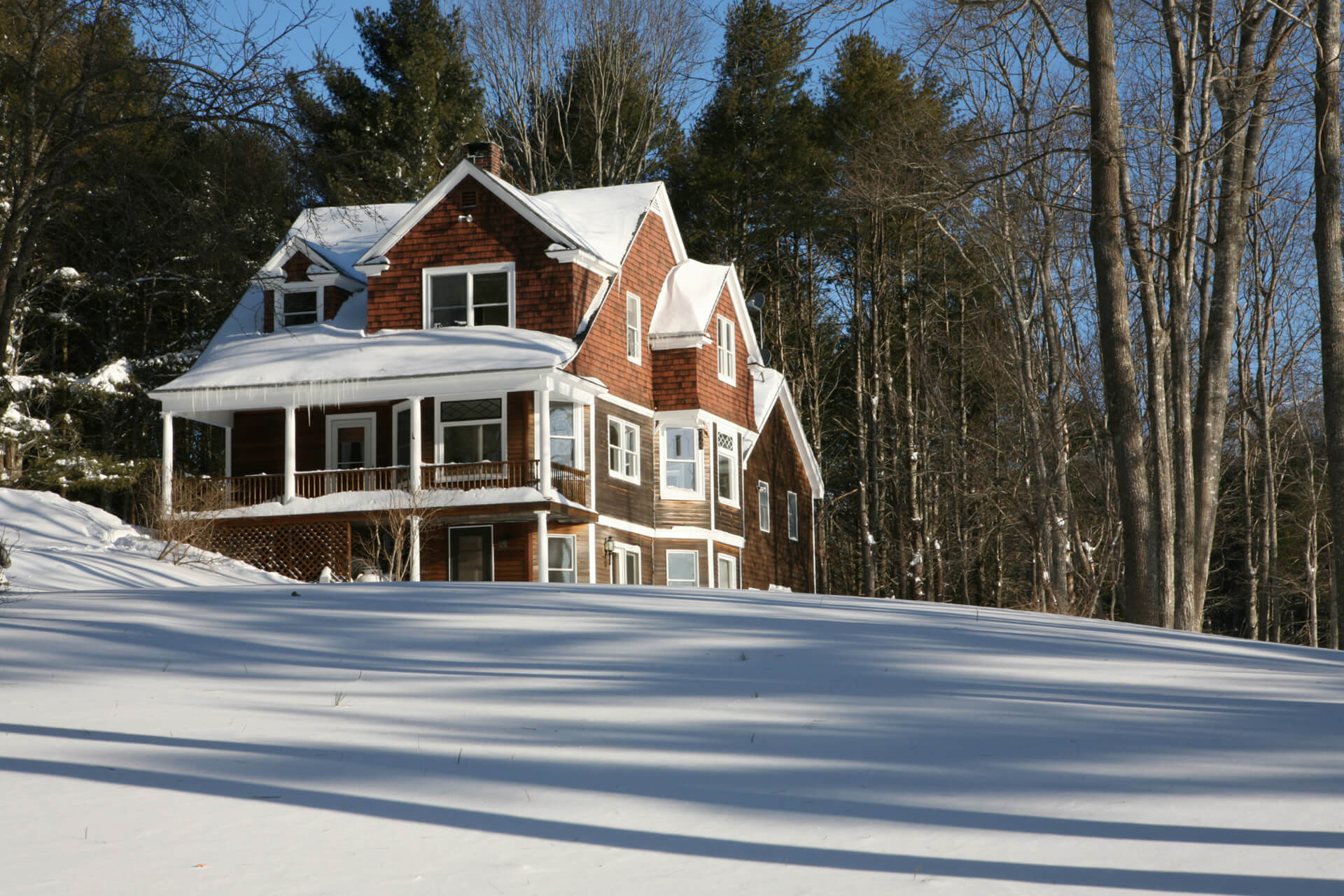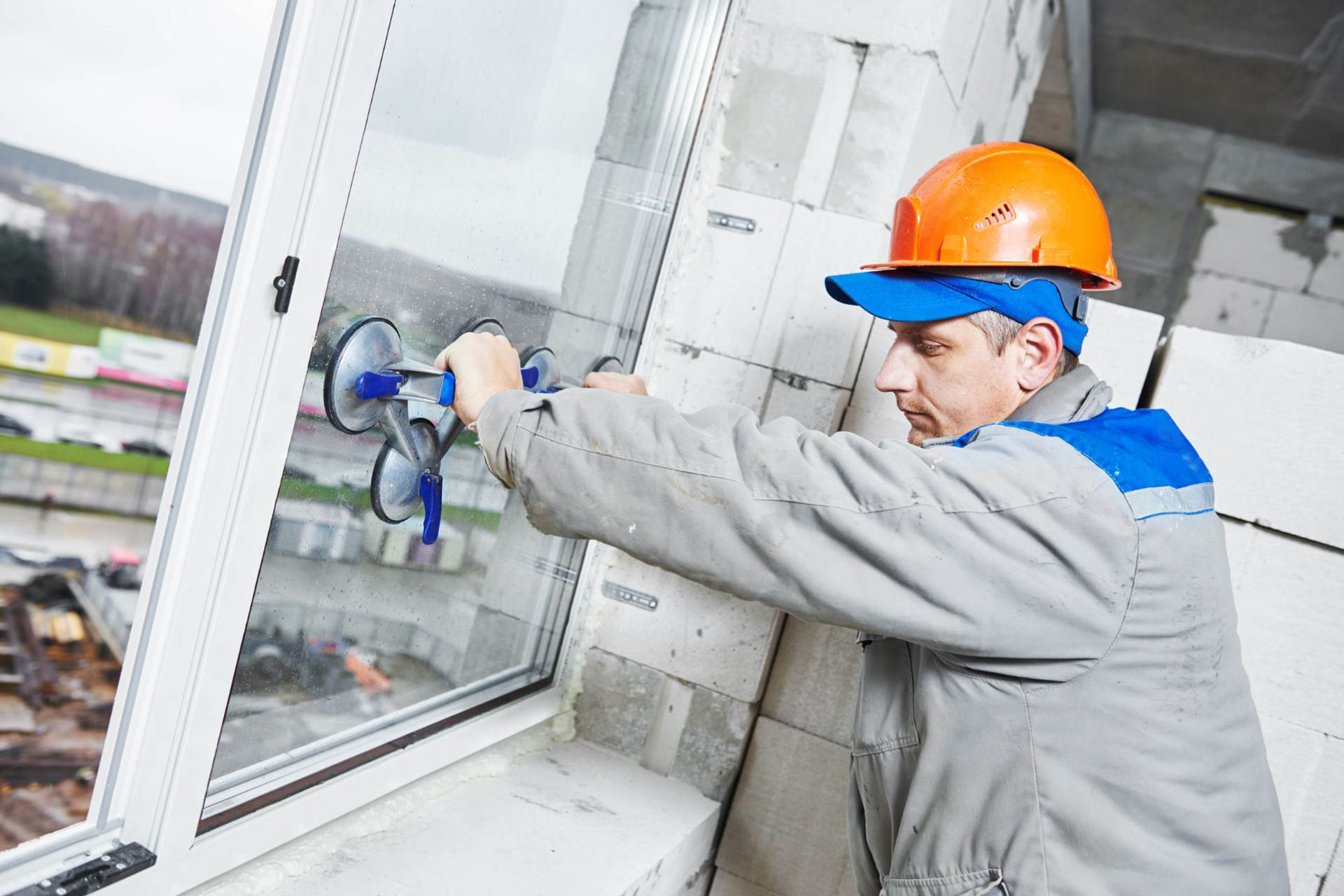Yes, glass can break from extreme cold under certain conditions. When glass is exposed to rapid and extreme temperature changes it can create stress within the material, causing the glass to crack or shatter, particularly if there are existing flaws or imperfections in the glass.
Certain types of glass, like tempered glass, are more resistant to thermal stress than others. Properly installed and maintained windows are less likely to experience cold weather-related breakages, but extreme temperatures can still pose a risk.
We know this is probably the last thing you want to deal with in the middle of winter—that’s why ensuring the type of windows you buy, from casement to awning, are manufactured to withstand Canada’s extreme climate conditions.
So, if you’ve ever wondered about the vulnerability of cold windows in the winter or sought ways to fortify your windows against the cold, this article is your guide. Let’s get into it!
Types of Glass Cracks Due to Extreme Cold
“Can glass break from cold air?” It’s a question that arises as temperatures plummet and winter’s icy grip tightens. When exposed to extreme cold, glass contracts, creating tension within the material. If the temperature disparity between the inside and outside of the glass is significant, this stress can exceed the glass’s strength, causing it to crack.

Image source: Canva
1. Thermal Stress Cracks
Thermal stress cracks occur when glass expands or contracts unevenly due to extreme temperature differentials. As temperatures drop sharply, the outer surface of the glass cools more rapidly than the inner layer, creating tension within the material. This tension can exceed the glass's structural capacity, leading to the formation of stress fractures.
Thermal stress cracks that occur on cold windows often start small near the edges. Tension pushes the crack to spread and radiate outward, resembling spider webs.
2. Pressure Cracks
Pressure cracks, also known as air pressure cracks, happen when the air pressure inside and outside the glass pane becomes imbalanced. Extreme cold can cause the air inside the sealed airspace of insulated glass units (IGUs) to contract, creating a partial vacuum. If the pressure difference between the inside and outside of the glass exceeds its structural capacity, the glass may rupture, resulting in pressure cracks.
While uncommon, multiple-pane windows with insulated glass panes are more prone to this issue. If they crack, these leaky windows increase heat loss, even when you have insulating curtains installed.
A window pressure crack formation manifests as straight lines or jagged fissures. Both start at window edges, but the former adopts an hourglass curve.
→ Read more: The Importance of Window Warranty
How to Prevent Window Glass Cracks in the Winter
While there’s nothing you can do to control the weather, there are steps you can take to prevent window glass from cracking in extreme cold.

Image source: Canva
Select High-Quality Glass
New windows in Canada should be manufactured to withstand extreme temperature fluctuations. Look for products made with tempered or laminated glass. These types of glass are more resistant to thermal stress and less prone to cracking in extreme cold conditions.
Ensure Proper Window Installation
From the window frames to the caulking and weatherstripping—it’s imperative that your home’s windows are properly installed with adequate edge support and insulation to minimize stress concentration points. Proper installation helps distribute thermal stress more evenly across the glass pane, reducing the risk of cracks forming due to cold air.
For homeowners in a pinch, here’s how to caulk and weatherstrip your windows and doors as a short-term preventative measure. Doing these prevents the cold air from coming in and drastically changing the temperature.
| Caulking | Weatherstripping |
|---|---|
|
|
⚠️ For a more complete guide, check out our blog on the ways to protect your windows in the winter.
Regulate Temperature Changes
Avoid sudden temperature changes by using curtains, blinds, or shades to regulate sunlight exposure and maintain a consistent indoor temperature. Gradual temperature changes are less likely to cause thermal shock and stress on the glass, reducing the risks of cracks forming in extreme cold weather.
Clera Windows + Doors: Your #1 Choice for Reliable Windows
Now that you know window glass can break from cold weather, it’s time to protect your home and replace any old, outdated, crack-prone models with properly installed and insulated ones.
Clera Windows + Doors offers a premium selection of residential windows built to withstand the province's coldest temperatures. Servicing Ontario homeowners for over 45 years, they’re the top choice for energy-efficient windows that prevent cold air from seeping into your home and disrupting your comfort.
Get in touch with us today and get a FREE estimate!







